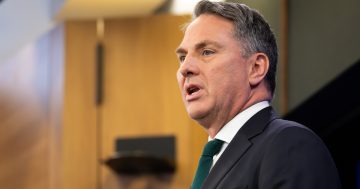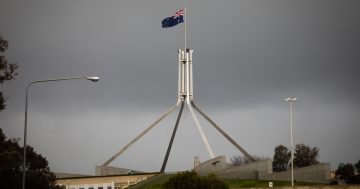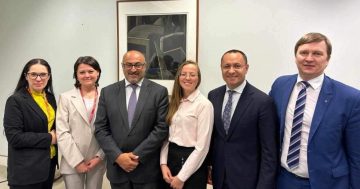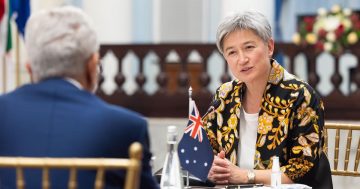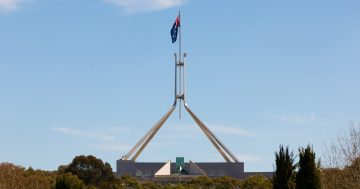Germany persisted in the vain hope of transforming or at least managing Russia under the Putin regime. Steve Wood* asks what went wrong and what has it cost?
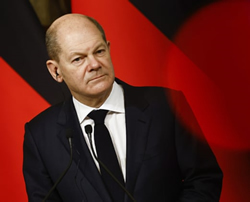 Only recently has the cost of a prolonged placatory engagement with Vladimir Putin’s regime in Russia truly dawned on Germany’s politically aware population.
Only recently has the cost of a prolonged placatory engagement with Vladimir Putin’s regime in Russia truly dawned on Germany’s politically aware population.
This Achilles heel of German foreign policy damaged decades of practical achievements, reputation building, and deserved praise in European and international affairs.
Germany’s Faustian pact with Putin involved receipt of cheap Russian gas in return for an unusually lenient stance toward an accumulating litany of hostile Russian actions.
German policy was also permeated by an intangible affinity-guilt complex, which translated into compensating a contemporary Russian dictatorship for the atrocities of a past German dictatorship.
Attitudes are even stranger in the territory of the defunct German Democratic Republic, where for part of the public a Stockholm Syndrome of identification with the former occupier manifested years after the Soviet withdrawal.
Another relevant factor is persisting anti-Americanism, not only at the extremes of the political spectrum but in the centre.
This combination of elements influenced a strategic failure, now impressed by Putin’s war against Ukraine, the ironic end of Russian gas deliveries, and the collapse of bilateral economic relations.
Still, some in Germany vainly hope for reconciliation with Russia while others assert that cooperation is an imperative that must be revived.
Excepting those members of the Social Democratic Party (SPD) who were active in predecessor Governments, a majority of the present Ampel (traffic light) coalition of SPD-Greens-Free Democratic Party cannot be blamed for problems that to greater or lesser extent derive from German-Russia policy.
For many years, however, the top echelon of the German State, including long-serving former Chancellor, Angela Merkel and incumbent Federal President, Frank-Walter Steinmeier dealt with Putin, if not the entire country, as if they were therapists treating a highly sensitive patient.
German strategy, based on dialogue, a high degree of tolerance, and the hope that trade and investment would gradually transform Russia, was to a point understandable, if not promising.
In response, the Kremlin regime’s internal and external behaviour only worsened.
Germany joined other European Union Member States and the United States in applying sanctions on Russian elites, it sent NATO troops to Lithuania, and provided various forms of assistance to Ukraine.
However, it was hesitant about genuinely punishing Putin by ceasing trade and investment, especially in the energy sector.
Eventually, in a speech to the Bundestag, Merkel’s successor Olaf Scholz (pictured) proclaimed a Zeitenwende (turning point) in world politics and German-Russian relations most especially.
Such a turning point had already been reached, at the very latest, eight years earlier, with the Crimea annexation.
A premier symbol of imprudence in Germany’s relations with Russia was the Nord Stream 2 pipeline project.
One was enough. The second was negotiated contemporaneous to the Minsk 2 deliberations, that is, after the Crimea annexation.
What signal would that send to the Kremlin? On the one hand we want peace; on the other we want (your) gas.
Former Polish Prime Minister and European Council President, Donald Tusk said that Nord Stream 2 was Merkel’s biggest mistake.
The Chancellor often referred to it as a purely commercial venture. A resounding international chorus said otherwise, to which Merkel made a minor rhetorical concession.
She was only one participant in the saga.
Former Economics and Energy Minister, Sigmar Gabriel was a key player in relevant intrigues, as the Kremlin indiscreetly revealed.
SPD attitudes and policy are traceable to the legend of Willy Brandt and his Ostpolitik, which contributed to East-West détente and eventually German reunification, though how much is debatable.
A more recent version was promoted by former Chancellor, Gerhard Schröder to whom many current SPD politicians are, or were, indebted.
Today, on the extremes of the spectrum, most of the crumbling far left Die Linke, and the far right Alternative für Deutschland are still strong supporters of Russia and German cooperation with it.
Putin’s most vigorous opponents are the Greens, who have undergone a major evolution since the 1990s.
Prominent members are now in charge of the influential Ministries of Foreign Affairs and Economics and Climate Change.
Their reorientation of German foreign policy has a redemptive aspect, making the new Government, with some exceptions, more proactively critical of the Putin regime than its predecessors.
This has occurred while Germany is trapped in an ‘energy crisis’, largely a result of withdrawal from dependency on Russian fossil fuels, but partly because of the Greens own policy of a complete exit from nuclear power, an ambition now deferred by six months and possibly longer.
All people make mistakes. Political mistakes are the costliest. Almost overnight some former Russia sympathisers became apologising apologists.
Later, most admitted errors of some sort — but at what cost?
Many are still active in politics. Others eluded responsibility through retirement from public office.
A fixation on cheap gas from a supposedly reliable authoritarian regime has left Germany with substantial problems in energy supply, foreign and security policy, and with rebuilding diplomatic relations with States that for years warned against compacts with Russia under Putin.
*Steve Wood is Associate Professor in Politics and International Relations at Macquarie University, Sydney.
A fuller version of this article appears on the Australian Outlook website of the Australian Institute of International Affairs.


